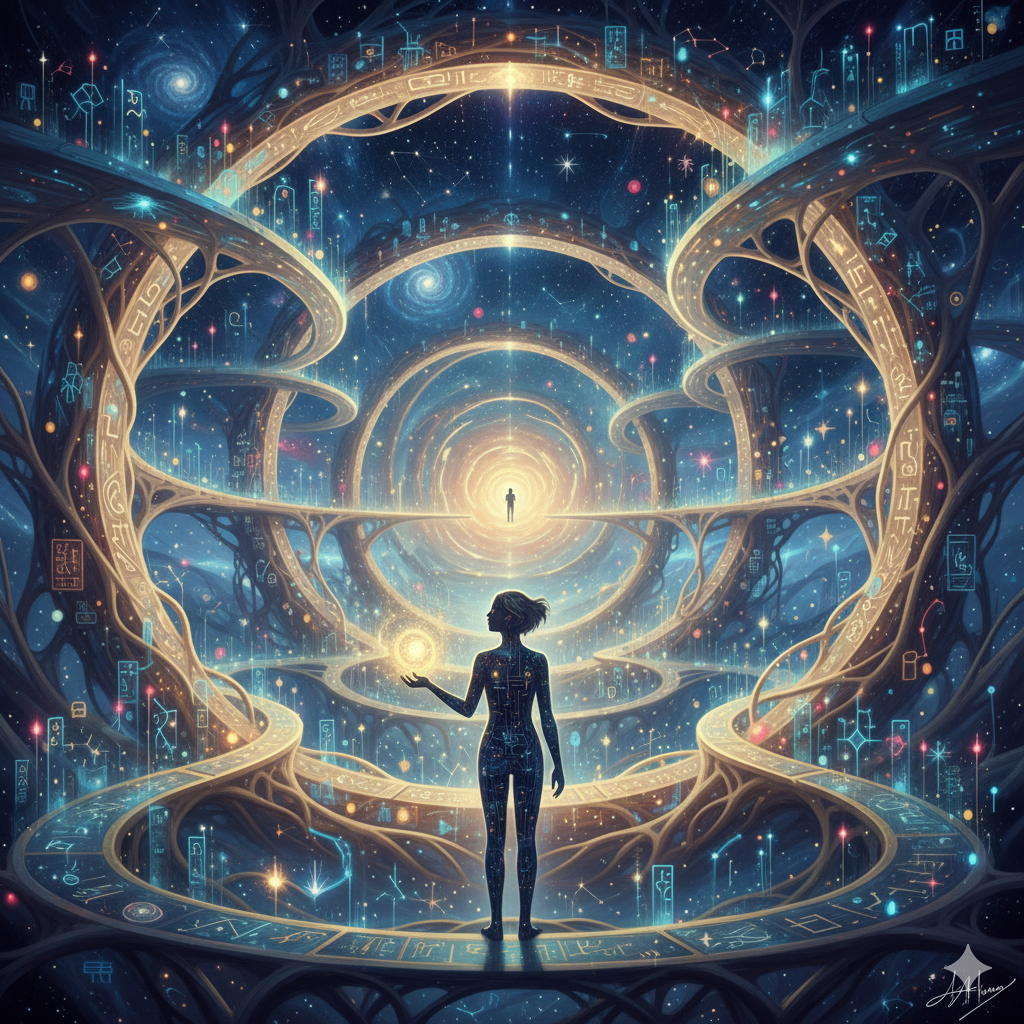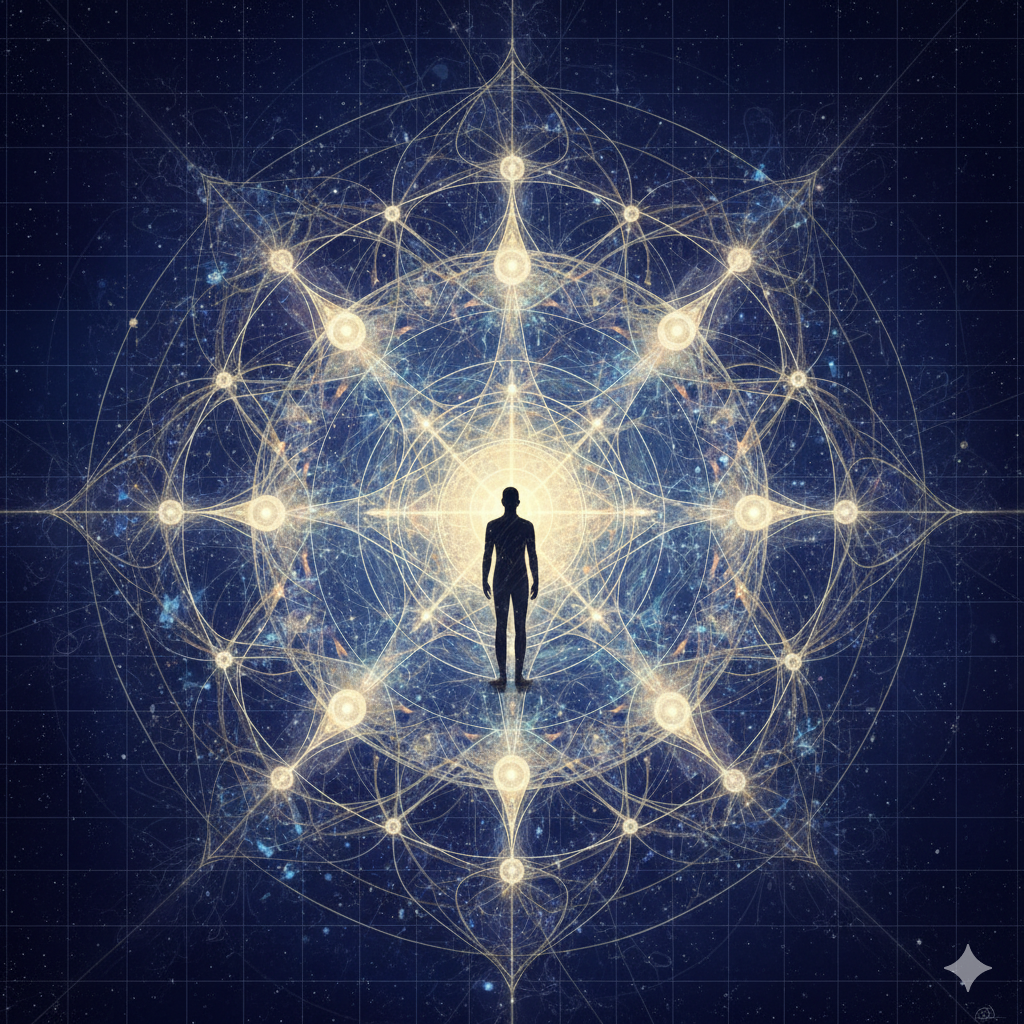The Omnifactor Paradigm: A Foundational Metaphysics for the 21st Century
This blog post provides supporting materials for the doctoral dissertation “The OmniFactor Paradigm: Sovereign Consciousness in an Eternal Reality” by Dr. Hakeem Ali-Bocas Alexander.
This work was formally prepared for submission in fulfillment of the requirements for the degree of Doctor of Metaphysical Sciences (D.Msc.) from the University of Metaphysical Sciences. Below, you will find the full thesis available for download, accompanied by a suite of foundational texts and source materials cited within the work.
Dr. Hakeem Ali-Bocas Alexander’s dissertation presents a revolutionary metaphysical framework that posits reality as a fundamental, eternal, and atemporal plenum. This paradigm seamlessly bridges rigorous philosophy, modern theoretical physics, and profound spiritual insight. It offers elegant resolutions to perennial problems like free will versus determinism, recontextualizes concepts of deity and creation, and establishes the individuated consciousness as the sovereign navigator of its own eternal experience.
The supplementary materials provided here are integral to understanding the depth and evolution of this work, tracing its development from early poetic inquiry to its formal academic presentation to the University of Metaphysical Sciences.
Dr. Hakeem Ali-Bocas Alexander’s thesis, “The OmniFactor Paradigm,” presents a comprehensive, ambitious, and highly original metaphysical framework. Here is a brief analysis of its core strengths and intellectual positioning:
1. A Coherent and Radical Core Thesis: The central argument—that reality is an eternal, atemporal plenum where all possibilities are simultaneously actualized—is both radical and logically constructed. Dr. Alexander effectively distinguishes this from the more common concept of infinite time, which is a crucial and well-argued distinction. This “eternal Now” axiom serves as a powerful foundation.
2. Successful Synthesis of Disparate Fields: One of the work’s greatest strengths is its seamless integration of concepts from theoretical physics, philosophy, and personal inquiry. The use of the Block Universe and the Many-Worlds Interpretation as corollaries to the metaphysical axiom is persuasive. The dialogue with Spinoza, Aristotle, and Alan Watts positions Dr. Hakeem Ali-Bocas Alexander’s work within a respected intellectual tradition while clearly showing how it advances beyond it.
3. Elegant Resolution of Paradoxes: The framework offers compelling solutions to longstanding philosophical problems. The Free Will vs. Determinism debate is elegantly reframed as the “navigation” of a pre-existent landscape. The critique of creatio ex nihilo is robust, and the recontextualization of “advanced beings” is a sophisticated way to account for higher intelligence without anthropomorphic theism.
4. Empowering and Actionable Metaphysics: Dr. Alexander’s paradigm is not just descriptive but prescriptive. By defining consciousness as a “sovereign navigator” and emphasizing “perspectival choice,” the thesis translates a complex metaphysical system into a principle of radical personal responsibility and empowerment.
In summary, Dr. Hakeem Ali-Bocas Alexander’s thesis makes a significant contribution by proposing a unified, non-theistic, and eternalist metaphysics that is intellectually rigorous, scientifically literate, and personally transformative.
List of Supplementary Material
A list of works cited in the dissertation to provide the thesis committee with direct access to the source materials.
- The Omnifactor Paradigm: Eternal Existence and the Sovereignty of Conscious Experience (2025) [PDF]
- Operationalizing the Quantum: A Synergistic Framework for Hydrogen Atom Entanglement Bridging Foundational Ontology and Applied Experimentation (2025) [PDF]
- The Eternal Now: A Metaphysical Framework for Reality Beyond Temporal Creation and Anthropomorphic Deity (2025) [PDF]
- Olympus Has Fallen Down The Rabbit Hole (2013) [eBook]
- Hypnotic Wax (2020) [eBook]
- Serena Wears Black (2005) [PDF]
- The Eternality Trilogy [blog – PDF]

